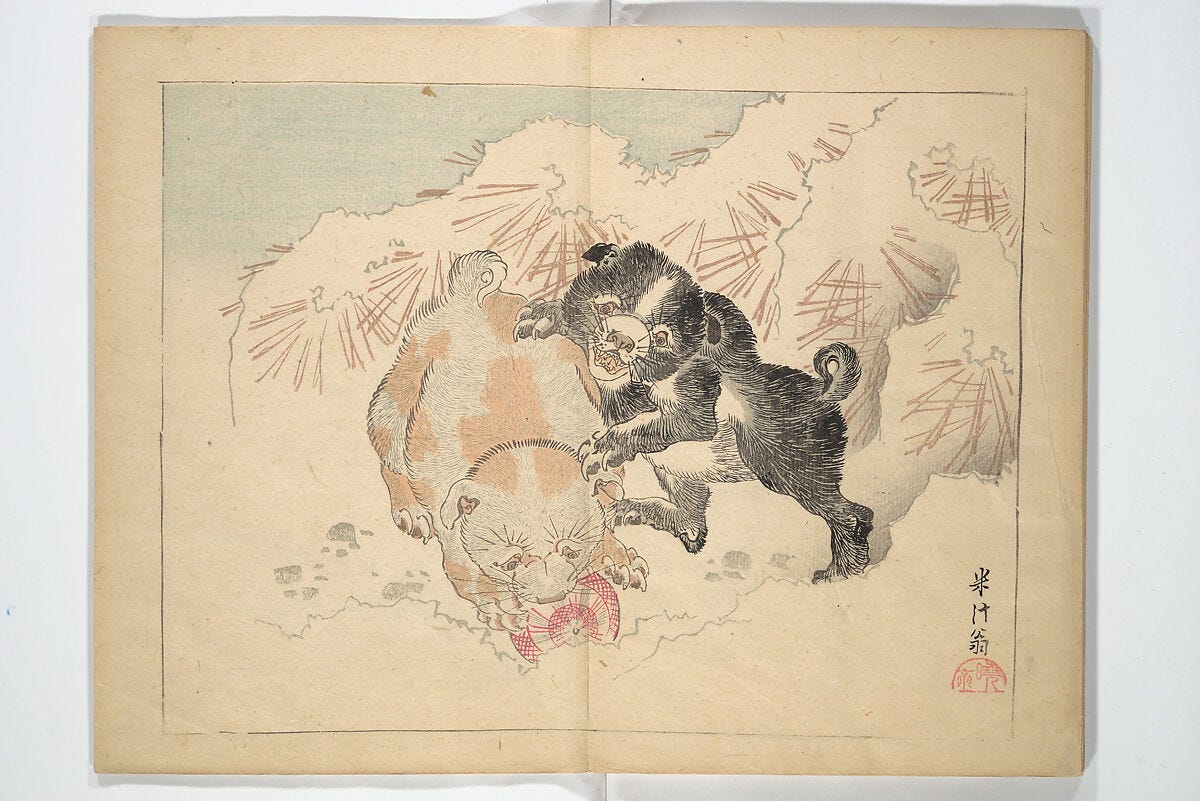Julian Kiverstein is a senior professor at Amsterdam Medical. He's co-authored various papers about the importance of play as it relates to active inference, intimacy and embodied cognition.
Play isn't just for children—it's a fundamental aspect of human flourishing at every stage of life. When we engage in play, we discover the sweet spot where risk and safety converge, creating perfect conditions for growth and development. This conversation with Julian Kiverstein, senior researcher at Amsterdam University Medical Center, explores how playfulness helps us break free from habitual patterns and attractor states that can trap us in suboptimal ways of being.
Drawing from his extensive work in phenomenology, embodied cognition, and predictive processing, Julian offers fresh perspectives on how play connects to mental health and wellbeing. Andrea and Julian discuss instances where people become stuck in rigid patterns, unable to explore alternative ways of engaging with the world. By contrast, playfulness involves stepping outside our comfort zones to discover new possibilities—but crucially, this exploration happens within contexts where we feel fundamentally safe.

Some key ideas:
• Play requires safety yet involves taking risks—a paradoxical relationship that enables personal growth
• Adults often lose the curious openness of childhood as we become fixated on seriousness and habitual patterns
• Love shares qualities with play as both involve transcendence beyond the self and openness to fresh experiences
• Active inference and predictive processing provide frameworks for helping us model and understand this dialectic of uncertainty and safety
• Breaking out of "attractor states" or fixed patterns requires disruption that playful activities can provide
• Creating safe spaces for play becomes essential for development, creativity, and meaning-making
00:00 The Role of Play in Well-being
01:50 Introduction to Love and Philosophy
02:45 Exploring Active Inference and Predictive Processing
05:24 The Importance of Play in Development
09:58 Julian's Journey into Mind Studies
12:11 Understanding Mental Illness through Predictive Processing
21:57 The Concept of Play and Its Cognitive Benefits
30:27 Intrinsic Motivation and the Value of Play
44:12 Play as a Disruptive Force in Mental Health
45:09 Understanding Mental Illness and Uncertainty
46:13 The Role of Play in Mental Health
47:38 Creating Safe Spaces for Emotional Regulation
49:05 Exploration vs. Exploitation in Learning
52:03 The Importance of Play in Adulthood
53:35 Art, Literature, and Emotional Engagement
56:55 The Need for Play in Academia
01:20:50 Balancing Exploration and Familiarity
01:23:37 Final Thoughts on Play and Well-being
Here are some of the papers discussed in this episode:
Intimate Places: Playgrounds for self-exploration
Playfulness and the Meaningful Life: An Active Inference Perspective with Mark Miller
Play in Predictive Minds with Marc Malmdorf Andersen and Andreas Roepstorff
JK and Darius Active Inference Institute
4E Cognition (with added Es)
Andrea’s conversation with Evan Thompson
⚙️ QBD Summary
Playing With Surprise: The Dynamics of Risk and Growth
We don’t talk much about play in adult life. However, as explored in this episode with Julian Kiverstein, play offers profound insights into the balance of risk, surprise, and human growth. Andrea and Julian discuss some of the work Julian and his many collaborators have done to link their take on predictive processing and active inference to play. Andrea and Julian use his papers as a way to discuss what play might look like for us as adults, and how play is a crucial component of our cognitive and emotional development.
Play and the Dance of Surprise
Play is the artful engagement with the unexpected, managing to create scenarios where surprise and risk coexist. Kiverstein highlights that in play, we seek a "sweet spot"—where challenges are neither too complex nor too simple. This balance fosters learning and personal growth, beneath which lie the concepts of active inference and the free energy principle, famously discussed by Karl Friston with Andrea for the 2025 New Years episode of this podcast.
Understanding Active Inference
Active inference posits that our brains are constantly minimizing surprise by aligning our internal models with external realities. Leaving the internal model controversy behind for now, how does this relate to play? Through playful interactions, we don’t just passively receive information. Instead, we actively seek out ways to disrupt our expectations, thereby inviting surprise. These moments are not alien to our system; rather, they are opportunities to refine our models, become more adaptable, and, importantly, learn.
Risk as Play’s Companion
Risk and uncertainty go hand in hand with surprise in play. Kiverstein acknowledges that without a level of risk, play loses its vibrancy and opportunities for growth. This intrinsic motivation, defined as the rewards derived from the activity itself rather than any extrinsic goals, is crucial. Engaging in activities that resolve uncertainty, even if momentarily, can lead to the mastery of new environments and skills.
The Paradox of Uncertainty
Andrea loves a good paradox, and plenty come up here. While we are naturally inclined to reduce uncertainty, Kiverstein suggests that play encourages what can be seen as a paradox: courting uncertainty to ultimately reduce it. Through playful risk-taking, individuals momentarily embrace uncertainty, only to emerge with a deeper understanding and ability to predict their surroundings, thus reducing future uncertainties.
Safe Spaces for Play
For play to be effective and healthy, it needs a safe space—a concept borrowed from developmental theorist Donald Winnicott, who describes “holding environments” crucial for nurturing exploration. Whether it's the child with a trusted caregiver or adults in supportive and imaginative environments like museums, safe spaces allow for the exploration of boundaries and facilitate the kind of risk-taking that leads to growth.
Karl Friston and Theoretical Foundations
Employing Friston’s framework, we see that organisms minimize the surprise of their sensory inputs by predicting and responding to their environment. Play, then, becomes a strategy for tuning these predictive models. While the environment constantly changes, playful interactions present a crucial mechanism through which living entities can continue to engage dynamically, learning and thriving amid novelty.
Embracing Playfulness
As adults, the demands of life often obscure the value of play. Yet, by intentionally embracing playful behaviors, we open ourselves to innovation, creativity, and continuity in learning—essentials for cognitive well-being. Kiverstein's insights remind us that while academia and theoretical models can sometimes seem rigid, they fundamentally underline a playful pursuit of knowledge, driven by curiosity and a willingness to take risks.
As we navigate our complex world, let us remember to cultivate environments where play can flourish, helping us not only to cope with uncertainty but to welcome it as a pathway to growth and flourishing. Embracing play might just be the key to unlocking our full potential.
Flowing with Karl Friston, Wrestling & Rick Rubin: As A Practice #13
Though this might be the first time Rick Rubin, pro wrestling, and Karl Friston have been mentioned in the same article, chances are you already know at least one of them. Still, here’s a quick recap:
Fore more about Active Inference, check out the Active Inference Institute:
Kawanabe Kyōsai 河鍋暁斎 Japanese, 1881, seventh month (Meiji 14) MET














Share this post